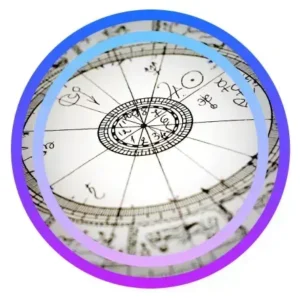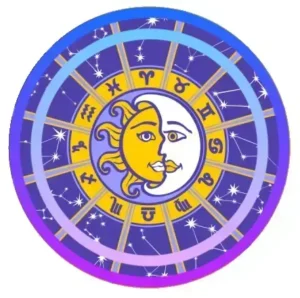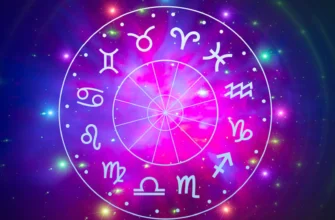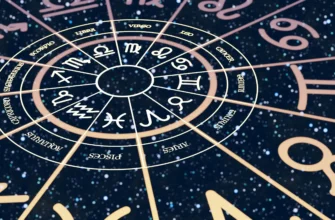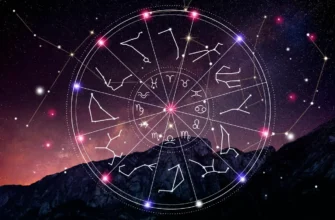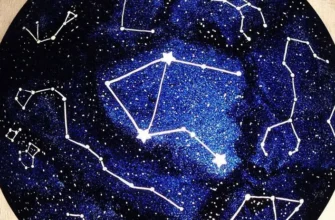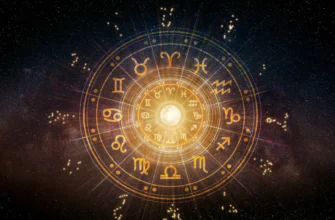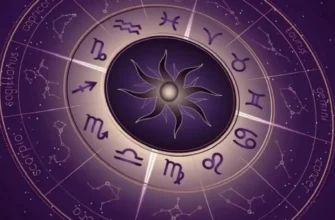Neptune opposition Pluto in synastry represents one of the most dramatic generational clashes found in relationship astrology. Neptune symbolizes dreams, illusions, and spiritual longing, while Pluto rules power, transformation, and psychological depth. When these forces directly oppose one another, the relationship becomes a mirror of competing visions—one partner seeks transcendence, while the other pushes for raw truth. In synastry chart analysis, this aspect often signals profound fascination mixed with confusion or emotional intensity.
The bond can expose illusions, challenge deeply rooted fears, or awaken hidden desires. Through relationship synastry, Neptune–Pluto oppositions may feel karmic, as though each person activates the other’s dormant psychological layers. A deeper synastry chart meaning suggests that this connection forces both individuals to confront their generational beliefs about power, spirituality, and emotional surrender. With clarity and boundaries, this aspect becomes a transformative teacher rather than a source of chaos—something best explored with a nuanced synastry reading.
Neptune opposition Pluto in synastry stands as one of the most challenging aspects in zodiac astrology, particularly when vulnerability and power imbalances exist between individuals. The aspect reveals that transcendent spiritual ideals (Neptune) and ruthless survival instincts (Pluto) operate on fundamentally incompatible frequencies, creating friction that personal goodwill cannot fully overcome.
For those exploring astrology interpretation through synastry analysis, Neptune-Pluto aspects demand serious attention, especially in caregiving, medical, spiritual, and financial contexts. The opposition indicates that what Neptune needs—trust, faith, gentle care, spiritual respect—directly conflicts with what Pluto delivers—control, transformation through destruction, power dynamics, and survival through dominance. When the Neptune person occupies a vulnerable position, the results can prove devastating.
The wisdom lies not in denying these difficult realities but in using astrological knowledge to make safer, more conscious choices. Not all Pluto in Leo grandparents will harm Neptune in Aquarius grandchildren, not all Pluto in Virgo doctors will mismanage Neptune in Pisces patients, and not all Neptune-Pluto oppositions manifest destructively. However, the aspect increases risk significantly enough that protective awareness and careful evaluation of actual behavior, not just assumed intentions, becomes essential.
Ultimately, Neptune opposition Pluto reminds us that astrology reveals forces operating beyond personal control—collective currents flowing through individuals, shaping behavior and outcomes regardless of conscious values. Respecting these forces, working consciously with them when possible, and strategically avoiding unnecessary exposure when appropriate represents mature astrological wisdom. The stars don’t control destiny, but they do reveal energetic patterns that wise individuals factor into their decisions about whom to trust, whom to avoid, and how to protect the vulnerable from collective forces that might otherwise cause harm through unconscious channels.
Generational Opposition Patterns: Who’s Affected
The Neptune opposition Pluto aspect manifests most commonly between grandparents and grandchildren due to the typical age span required for these planets to reach opposition positions. One particularly significant opposition involves grandchildren born between 1998 and 2011 with Neptune in Aquarius, and between 2011 and 2025 with Neptune in Pisces, whose Neptunes oppose the Pluto in Leo of grandparents born between 1937 and 1956.
When grandparents with Pluto in Leo (particularly those with Pluto degrees that closely oppose their grandchildren’s Neptune degrees) attempt to care for grandchildren with Neptune in Aquarius or Pisces, fundamental incompatibility emerges at unconscious levels. This doesn’t mean these grandparents lack love for their grandchildren or possess conscious malevolent intent—rather, the collective energies represented by their Pluto fundamentally clash with the collective dreams and vulnerabilities represented by the children’s Neptune.
The Pluto in Leo generation grew up during and immediately after World War II, experiencing formative years marked by authoritarian power structures, clear hierarchies, dramatic displays of destructive force, and survival-focused mentality. Their Pluto carries themes of ego-driven power, dramatic control, and the transformation through creative force and individual will. This generation’s relationship to power, control, and survival fundamentally conflicts with Neptune in Aquarius’s themes of collective consciousness, humanitarian ideals, technological transcendence, and dissolution of ego-based hierarchies, as well as Neptune in Pisces’s themes of universal compassion, spiritual sensitivity, and boundary-dissolving empathy.
Another significant opposition occurs between the Pluto in Virgo generation (born 1957-1972) and the Neptune in Pisces generation (born 2011-2025). This represents a fifty-plus-year age gap, which traditionally would indicate grandparent-grandchild relationships. However, because the Pluto in Virgo generation pioneered delayed marriage and childbearing patterns, this opposition increasingly manifests in professional caregiver relationships rather than family dynamics. Pluto in Virgo individuals often occupy roles as pediatricians, kindergarten administrators, healthcare providers, and institutional caregivers for Neptune in Pisces children.
The opposition between Virgo and Pisces—already a natural axis of tension in zodiac signs astrology—intensifies when Pluto occupies Virgo and Neptune occupies Pisces. Pluto in Virgo represents transformation through analysis, control through systems and categorization, power expressed through technical expertise and critical discrimination. Neptune in Pisces embodies its most potent expression—boundless compassion, complete dissolution of boundaries, vulnerability, and transcendent spiritual sensitivity. The clash between Pluto’s need to control, analyze, and perfect versus Neptune’s need to dissolve, trust, and surrender creates maximum friction.
Why Conventional Wisdom Fails: The Hidden Danger
Conventional wisdom suggests grandparents naturally love and protect grandchildren, making them ideal caregivers compared to hired help or institutional childcare. Most parents prefer entrusting children to their own parents, assuming blood relationships guarantee safety and nurturing care. However, horoscope compatibility analysis through outer planet aspects reveals a more complex and sometimes disturbing reality: family relationships don’t automatically ensure harmonious energy or protective dynamics.
When examining Synastry Chart Calculator results, particularly focusing on outer planet aspects unrelated to personal traits, patterns emerge that contradict conventional assumptions. Outer planets (Jupiter, Saturn, Uranus, Neptune, Pluto) represent collective, generational, and transpersonal energies rather than individual personality characteristics. Two people might possess compatible personal planets (Sun, Moon, Mercury, Venus, Mars) creating pleasant surface interactions, while simultaneously carrying destructive outer planet aspects operating at unconscious collective levels that generate inexplicable harm, negligence, or cruelty.
News reports regularly feature cases of children harmed, neglected, or killed while under grandparental care—situations that shock communities because they violate expected norms of grandparental love and protection. Astrological analysis of these tragic cases often reveals challenging aspects in both the grandparent’s and child’s natal charts, with particularly problematic synastry aspects between them. When a child’s natal chart contains serious afflictions (indicating inherent vulnerability), and that child is placed in the care of grandparents whose outer planets clash with the child’s planets, the disharmony in external energies can produce severe, sometimes fatal consequences.
This represents one of astrology’s most uncomfortable revelations: good intentions and conscious love don’t necessarily override unconscious collective energies operating through outer planet aspects. A grandparent might genuinely love their grandchild at the personality level while simultaneously carrying Pluto energy that unconsciously harms the child’s Neptune. The grandparent doesn’t understand why they feel irritated, resentful, or neglectful toward this particular grandchild when they felt differently toward other grandchildren. The answer often lies in outer planet aspects—the collective generational energies flowing through both individuals create friction regardless of personal will or conscious intention.
Neptune’s Vulnerability to Pluto’s Power
In Neptune opposition Pluto dynamics, Neptune consistently occupies the more vulnerable position. Neptune symbolizes dreams, ideals, faith, compassion, and spiritual transcendence, but critically lacks the ability to protect itself, establish boundaries, or execute practical action. Neptune dissolves, surrenders, and trusts—qualities that become dangerous liabilities when encountering Pluto’s ruthless drive for power, control, and survival at any cost.
Pluto doesn’t merely clash with Neptune—it actively harms Neptune, especially when Pluto itself carries challenging aspects in the natal chart. Pluto transforms through destruction, controls through manipulation, and survives by eliminating threats. When Pluto encounters Neptune’s vulnerability, boundary-lessness, and naive trust, Pluto’s shadow side often emerges: exploitation, cruelty, and abuse of power against the defenseless.
The Neptune person in this opposition experiences their dreams crushed, their faith betrayed, their trust violated, and their spiritual ideals corrupted by Pluto’s cynical manipulation. The Pluto person, often unconsciously, sees Neptune’s vulnerability as weakness deserving exploitation or elimination. Pluto operates from survival instinct and doesn’t respect Neptune’s gentle spirituality—instead, Pluto views such qualities as threats to its control or opportunities for domination.
This dynamic proves particularly dangerous when the Neptune person is literally vulnerable—a child, an ill patient, an elderly person with dementia, or anyone in dependent positions requiring trust and care. The Pluto person, positioned as caregiver or authority figure, wields tremendous power over Neptune’s welfare. If outer planet aspects create fundamental incompatibility, the results can range from subtle emotional abuse and neglect to overtly dangerous situations and even death.
Medical and Institutional Caregiving Concerns
The Pluto in Virgo (1957-1972) and Neptune in Pisces (2011-2025) opposition deserves particular attention in medical and institutional contexts. Both Virgo and Pisces govern health, healing, and the body-spirit connection in compatibility zodiac systems, but from opposite perspectives. Virgo represents analytical medicine, systematic diagnosis, technical intervention, and the body as machine requiring expert repair. Pisces represents holistic healing, faith in natural processes, spiritual approaches to illness, and the body as sacred vessel for spiritual experience.
When Pluto occupies Virgo and opposes Neptune in Pisces, maximum conflict emerges in doctor-patient relationships, particularly when treating vulnerable children. The Pluto in Virgo doctor, now in their fifties to seventies, carries transformation-through-analysis energy that can manifest as excessive intervention, unnecessary procedures, dismissal of parental intuition, and authoritarian imposition of technical expertise. Their Pluto drives them to control, to fix, to transform through cutting and chemical intervention, potentially overriding the Neptune in Pisces child’s need for gentle, spiritually-attuned, minimally invasive care.
Parents of Neptune in Pisces children should exercise particular caution when seeking medical care from providers appearing more than fifty years older than the child—precisely the age range indicating Pluto in Virgo. This doesn’t mean all Pluto in Virgo doctors harm Neptune in Pisces patients, but the opposition creates higher risk of medical disputes, misdiagnosis, excessive treatment, dismissal of symptoms, or fundamental misunderstanding of the child’s needs.
The Neptune in Pisces child might be highly sensitive to medications, require more holistic treatment approaches, need emotional and spiritual support alongside physical intervention, and respond poorly to harsh or invasive procedures. The Pluto in Virgo doctor, operating from opposite principles, might dismiss these needs as parental overprotectiveness, insist on aggressive treatment protocols, and use their institutional authority to override parental concerns. Medical malpractice, preventable complications, and treatment-caused harm become more likely when this opposition operates unconsciously.
Similarly, Neptune in Pisces children placed in educational or childcare institutions run by Pluto in Virgo administrators face potential difficulties. The institutional approach emphasizing control, rigid systems, behavioral modification, and standardized approaches (Pluto in Virgo’s domain) fundamentally conflicts with Neptune in Pisces children’s needs for creative freedom, spiritual expression, emotional fluidity, and individualized care that honors their sensitivity and unique perceptions.
Spiritual and Religious Conflicts
Beyond caregiving and medical contexts, Neptune opposition Pluto creates profound conflicts in spiritual, religious, and metaphysical domains. Neptune governs faith, spiritual transcendence, mystical experience, and the dissolution of ego into divine unity. Pluto governs occult power, transformation through death and rebirth, control of hidden forces, and the ruthless elimination of anything blocking evolutionary necessity.
When these planets oppose each other between two people, their approaches to spirituality prove fundamentally incompatible. The Neptune person seeks surrender, faith, compassion, and merging with divine love. The Pluto person seeks power, control over spiritual forces, transformation through destruction, and evolutionary pressure that eliminates weakness. Neptune wants to dissolve boundaries and trust in cosmic benevolence; Pluto wants to harness dark forces and survive through strategic dominance.
In religious or spiritual teacher-student relationships featuring this opposition, particularly when the teacher carries Pluto and the student carries Neptune, severe abuse potential exists. The teacher’s Pluto can exploit the student’s Neptune vulnerability, using spiritual authority to manipulate, control, and harm under the guise of spiritual advancement. Cult dynamics, sexual abuse by spiritual leaders, financial exploitation of believers, and psychological destruction through spiritual manipulation often feature Neptune-Pluto oppositions between perpetrator and victim.
The Neptune person’s faith, trust, and desire for spiritual experience create perfect conditions for Pluto’s shadow expression—manipulation, domination, and ruthless use of power over the vulnerable. The Neptune person wants to believe in their teacher’s divine authority and can’t imagine that spiritual language might mask predatory intent. The Pluto person, especially if their natal Pluto carries challenging aspects, uses this trust as leverage for control and exploitation.
Financial Incompatibility and Resource Conflicts
Money represents another realm where Neptune opposition Pluto creates severe problems. Neptune approaches resources through idealism, sharing, dissolution of ownership, and faith that abundance flows naturally. Pluto approaches resources through control, strategy, survival necessity, and ruthless accumulation of power through wealth. These opposing philosophies make financial partnerships, shared resources, and inheritance situations particularly fraught.
When Neptune and Pluto oppose each other in synastry, particularly if they aspect each other’s second or eighth houses (money and shared resources), financial disaster frequently results. The Neptune person might be financially exploited, manipulated into unwise investments, or gradually stripped of resources by the Pluto person’s strategic maneuvering. The Neptune person doesn’t see the manipulation happening—they trust, believe in shared abundance, and can’t imagine the Pluto person would deliberately harm them financially.
Business partnerships between people with Neptune opposition Pluto prove particularly dangerous. The Neptune partner dreams, creates vision, and trusts in shared success, while the Pluto partner strategically positions themselves to control resources and eliminate the Neptune partner once they’ve extracted maximum value. Even in family contexts, inheritance disputes between grandparents with Pluto and grandchildren with Neptune often feature manipulation, hidden control, and eventual betrayal when the Neptune person discovers they’ve been systematically disadvantaged.
Breaking Free: Conscious Awareness and Protection
Understanding Neptune opposition Pluto through Free Synastry Chart analysis provides crucial information for making safer choices about caregiving, medical providers, spiritual teachers, and financial partners. This knowledge doesn’t condemn all relationships featuring this aspect, but it does demand conscious awareness and protective boundaries that wouldn’t be necessary with harmonious aspects.
For parents of Neptune in Aquarius or Pisces children, carefully evaluate potential caregivers’ ages and, if possible, birth dates. If grandparents fall into the Pluto in Leo generation (born 1937-1956), honestly assess whether they demonstrate genuine attunement to the child’s needs or display subtle signs of irritation, control, or neglect toward this particular grandchild. Trust parental intuition—if something feels wrong about leaving the child with certain grandparents, honor that feeling regardless of family pressure or conventional expectations.
When selecting medical providers for Neptune in Pisces children, consider doctor’s ages and observe their treatment philosophy. Do they listen to parental concerns and the child’s expressed needs, or do they dismiss non-technical perspectives? Do they favor gentle, minimally invasive approaches when appropriate, or default to aggressive intervention? Do they respect the child’s sensitivity and unique constitution, or apply standardized protocols without individualization? These questions become especially important when the provider’s age suggests Pluto in Virgo.
In spiritual contexts, Neptune individuals should exercise extreme caution before surrendering authority to teachers or leaders whose age suggests opposing Pluto placements. Demand transparency, maintain outside relationships and perspectives, set clear financial boundaries, and immediately exit any situation where spiritual language masks control, manipulation, or exploitation. Neptune’s tendency toward idealization and trust makes conscious discernment essential when potentially harmful Pluto energy operates through spiritual authority figures.
The Broader Lesson: Astrology Beyond Personal Compatibility
Neptune opposition Pluto teaches crucial lessons about astrology and horoscope interpretation beyond individual personality compatibility. Outer planet aspects reveal collective, generational, and transpersonal dynamics that operate regardless of personal intention, conscious values, or surface-level compatibility. Two people might share pleasant conversations, similar interests, and apparent mutual care while carrying outer planet aspects that generate unconscious harm, exploitation, or danger.
This challenges conventional assumptions about relationships, particularly family bonds. Blood relationships don’t guarantee energetic harmony or safety. Conscious love doesn’t automatically override unconscious collective forces. Good intentions don’t prevent harm when fundamental energetic incompatibility exists at transpersonal levels. These uncomfortable truths require mature astrological understanding that honors both personal agency and collective forces beyond individual control.
The aspect also reveals why certain historical periods generate systematic harm to vulnerable populations. When entire generations carry Pluto placements opposing Neptune placements of later generations, societal patterns of institutional abuse, medical malpractice, educational trauma, and caregiver negligence emerge across entire cultures. Individual cases represent broader collective dynamics—the systematic expression of generational conflict operating through millions of individual relationships.
Understanding these patterns doesn’t create fatalism or helplessness—quite the opposite. Knowledge empowers conscious choice, protective action, and strategic avoidance of unnecessary risk. Parents can’t change their children’s Neptune placements or grandparents’ Pluto placements, but they can make informed decisions about caregiving arrangements, medical providers, and institutional placements that honor astrological realities alongside practical considerations.


